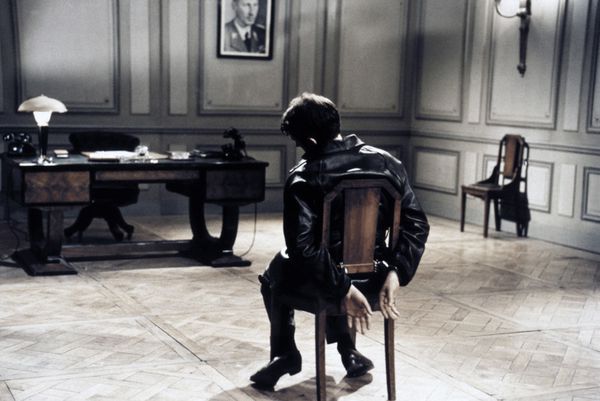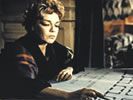Eye For Film >> Movies >> Army Of Shadows (1969) Film Review
Army Of Shadows
Reviewed by: Tim Bryant

This is a cold, monumental and disturbing piece of cinema. It represents director Jean-Pierre Melville’s tribute to the French resistance movement in which he played a minor part in the Second World War. It charts the story of a fictional group of resistance leaders. The narrative is episodic and often in the backseat to the film’s lofty, stylistic mission: to convey the cold, hard, emotional reality of its resistance fighters.
The film begins with a striking image of German forces marching past a wintry and gloomy Arc de Triomphe to the accompaniment of military music. This sets the bleak nightmarish tone of the film. We follow the internment of Phillipe (Lino Ventura) in a rain-swept Vichy prison camp. The lengthy exposition gives a clue to Meville’s real intention of stylistically capturing the world view of his characters at the expense of classical narrative. Although dressed as an establishment piece of conservative historical drama, the film is something else. Melville - one of cinema’s great individualists - brings his own cold sensibility to it, something genuinely shaped in his days as a resistance fighter, then carried into his filmmaking.

The result is an astonishingly austere and powerful film - which strips its characters down to their cold efficiency and lonely certainty of death. As Ventura’s character escapes and meets up with other resistance fighters, one is struck by the bleak, nightmarish plight of a nation and the extreme heroism of its self-denying underground fighters. They comport themselves with the same cold efficiency as the detectives from the rest of Meville’s oeuvre. This is, in fact, the place from which these detectives spring.
A traitor to the movement is met in Marseille and coldly despatched. The colour palette is cold and steely and the music haunting. The characters are most striking for their cold detachment and are frequently framed as if behind bars in symbolism of the occupation. The narrative is at times so loose as to make the viewing experience quite difficult. But this is redeemed by Meville’s highly sophisticated stylistic and symbolic endeavours.
The film comes into it own in its second half as the net tightens around the various characters. The young and dashing Luc (Paul Meurisse) is captured and tortured and we must assume killed, while irrepressible pillar of strength Mathilde, wonderfully played by Simone Signoret, tries to arrange for his and fellow resistance member Felix’s (Paul Crauchet) rescue by driving a Gestapo ambulance into a German army base. The film is really at times a collection of memorable scenes held together by its high stylistic purpose.
This is a cold, harrowing view of existential heroes fighting for their nation is rightly hailed as a seminal work and sticks in the mind long after its viewing.
Reviewed on: 27 Dec 2006
















